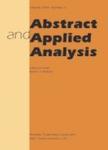版权所有:内蒙古大学图书馆 技术提供:维普资讯• 智图
内蒙古自治区呼和浩特市赛罕区大学西街235号 邮编: 010021

作者机构:Industrial Engineering Program Study Faculty of Industrial Technology Universitas Islam Indonesia Yogyakarta Indonesia
出 版 物:《AIP Conference Proceedings》
年 卷 期:2024年第2891卷第1期
摘 要:Technological developments also affect the development of science. Universities, as one of the media that play an important role in science and discoveries, are also growing rapidly. The varied majors encourage students to be more selective in choosing them. This study examines the formation of cognitive dissonance in The Higher Education Program in Undergraduate Program students at the Higher Education Program (HEP) Indonesia. The dimensions involved of cognitive dissonance were including emotional, wisdom of purchase, and concern over the deal. The emotional dimension is measured by 15-question indicators, the wisdom of purchase dimension is measured by 44-question indicators, and concern over the deal is measured by 3-question indicators. The research sample used 111 students of the 2017 and 2018 batches or third and fourth-year students of the HEP in Undergraduate Level. The analytical technique applied in this study uses factor analysis. The results of cognitive dissonance analysis using factor analysis on emotional variables showed that students were not upset to choose the intended undergraduate level of HEP in Indonesia, on the wisdom of purchase variable, it shows that students felt the need to choose the HEP in Undergraduate Program. The concern over the deal variable showed that students did not feel confused in choosing the HEP in the Undergraduate Level.